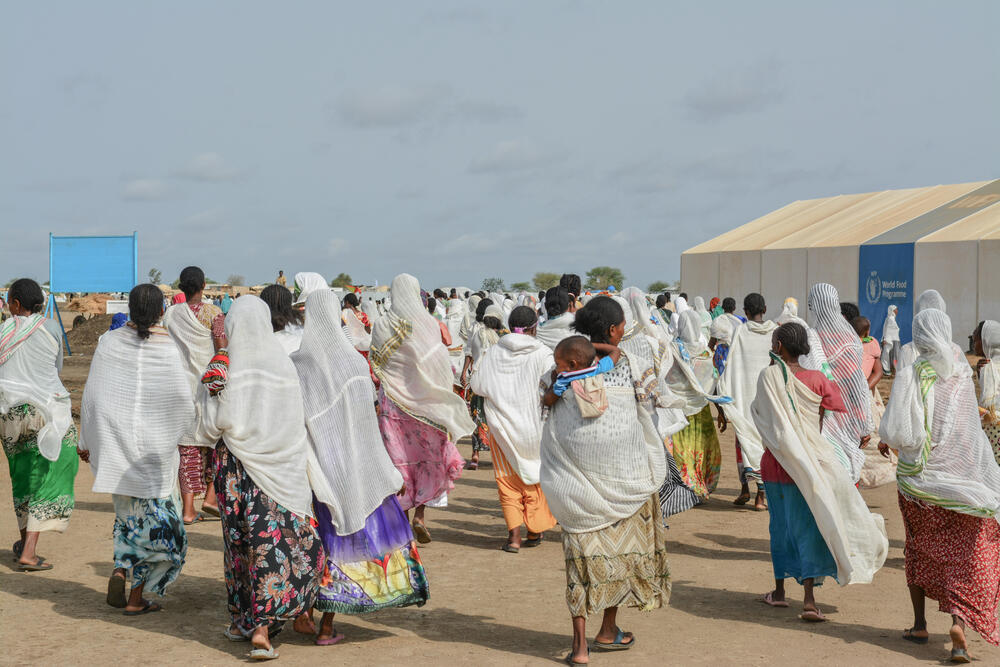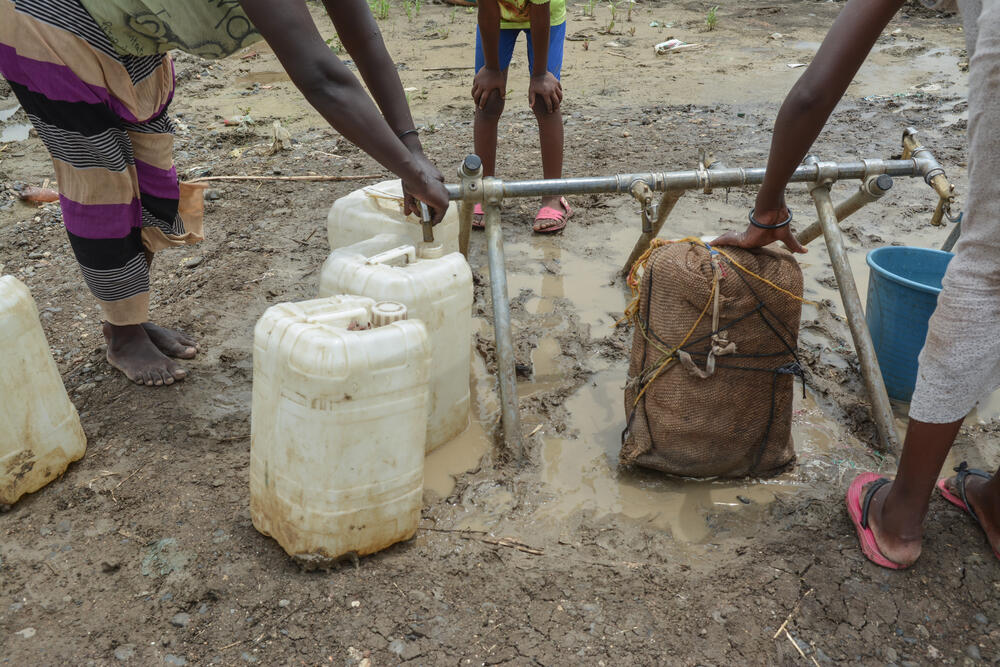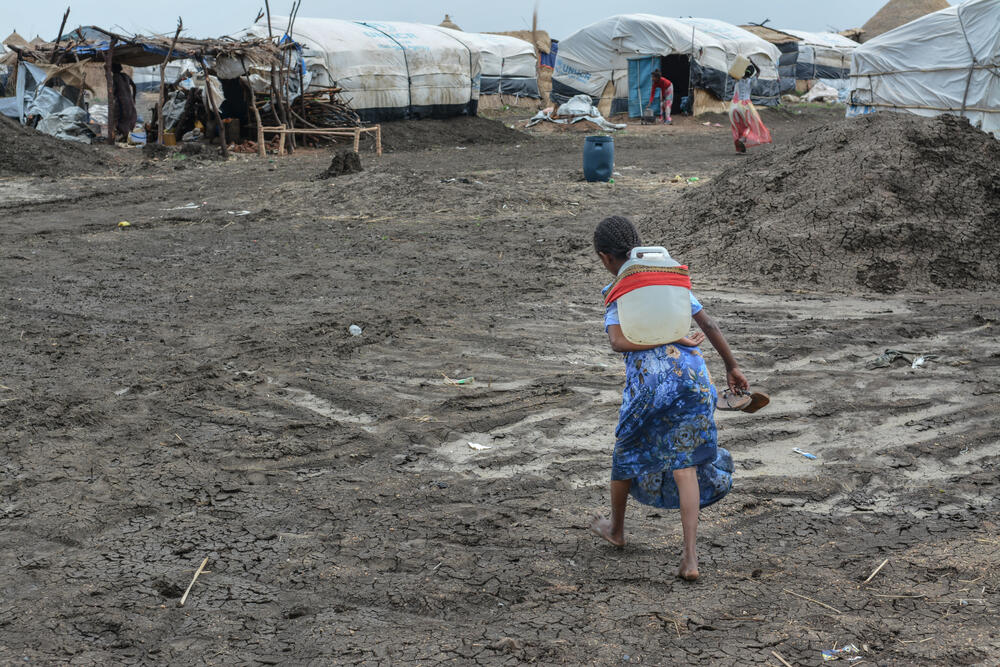Tigray crisis: MSF responding to dangerous spread of hepatitis E in Sudan camps
In east Sudan, cases of hepatitis E are rapidly spreading across refugee camps, infecting people who have fled the Tigray crisis in neighbouring Ethiopia and posing a risk to local communities.
In the past few weeks, Médecins Sans Frontières / Doctors Without Borders (MSF) medical teams in Gedaref state’s Umm Rakouba camp and Al Hashaba/Village 8 transit centre have seen 278 hepatitis E patients, of which 16 were hospitalised including three pregnant women.
Many patients have acute jaundice syndrome – a tell-tale sign of the virus – vomiting and abdominal pain. Some of those treated by MSF have arrived comatose.
“Since day one, the humanitarian response has been two steps behind the needs of people here”
Umm Rakouba camp is now recording a daily average of 15 new cases. Six cases have also been identified in Al-Tanideba, with more than three cases in Hamdayet.
Explained: hepatitis E
Hepatitis E is a contagious virus that causes liver disease. It noticeably yellows the eyes and skin (known as jaundice), causes fatigue and dark urine, and can lead to acute liver failure and death.
It is particularly dangerous for pregnant women, for whom the risk of death is about 25 percent.
As with other diseases like typhoid, dysentery and cholera, the hepatitis E virus thrives in environments with poor water and sanitation conditions.
Ignored warnings
“Since day one, the humanitarian response has been two steps behind the needs of people here,” says François Zamparini, MSF emergency coordinator in Gedaref state.

Help us prepare for the next emergency
“Early warnings about inadequate sanitation, hygiene and shelter were not heeded, and latrine and water point building has been far too slow. As a result, we now have widespread open defecation in the camps.
“Tigray’s refugees are paying the price for poor international coordination with their own health.”
In both Al-Tanideba and Umm Rakouba, toilets are scarce or unusable.
In Umm Rakouba, there are only 175 latrines for 20,000 people, while in Al-Tanideba many latrines have been destroyed by heavy rain and wind. Together these two camps host about 40,000 people.
Work is underway to build new toilets, but with the onset of the rainy season many won’t be ready for several months. Others are located right next to water points, increasing the potential risk of contamination.
However, in late July, heavy rainfall flooded many parts of Al-Tanideba, making the situation even worse.
Humanitarian organisations must urgently increase the quantity and quality of latrines, particularly as the rainy season is likely to increase the spread of other waterborne diseases.
“The toilets have been a problem since we arrived,” says Mehrut, who lives in Al-Tanideba with her five children.
“They are never cleaned or maintained, and we do not feel comfortable using them.”
Sadly, because food distributions have also been erratic, many refugees have also resorted to selling their soap in order to buy food.
Preventative action
In response to the growing number of hepatitis E cases, MSF teams have raised chlorine levels in the water we provide and taken measures to protect and disinfect boreholes under our management.
MSF has also increased health education and outreach in the camps. This has included a jerry can cleaning campaign to ensure refugees can safely store their water.
Our teams are also following up with pregnant women, providing them with additional soap as a preventative measure.
“The spread of hepatitis E could have been avoided if the basic infrastructure had been in place on time,” says MSF project coordinator Sergio Scor.
“Instead, there has been a collective failure to provide dignified and safe services to a relatively small number of refugees.”
MSF and the Tigray crisis
Tens of thousands of refugees have fled the Tigray region of Ethiopia after fighting erupted in early November 2020.
Our teams began triaging and treating war-wounded people on 5 November in the Amhara region of Ethiopia, and are also providing emergency medical care to people who have fled across the border into Sudan.
People fleeing the violence are in urgent need of medical care, shelter, water and food.



